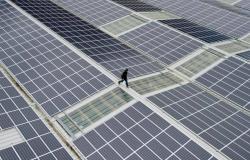IQuestioned by two deputies from the Authenticity and Modernity group (PAM) and the Socialist-Opposition Ittihadi group (USFP), the minister was keen to recall the progress made by the Kingdom in terms of media pluralism over the last two decades. “We have been experiencing in the Kingdom of Morocco for twenty years a series of notable developments in this area”he said before presenting some figures to support his remarks.
According to Mehdi Bensaid, Morocco counts today “988 electronic sites” et “275 newspapers”to which are added “106 foreign journalists operating in Morocco”. These figures, according to him, demonstrate true pluralism. The minister also highlighted the dynamics of public debates, citing in particular the ongoing national debate around the Moudawana: “It is completely natural for a society to debate these topics and, subsequently, for the legislature to adopt laws adapted to the needs of society. »
Regarding the press, he stressed that it plays an essential role in the Moroccan democratic landscape: “The press, sometimes, supports the government, other times it criticizes it, and this is precisely what testifies to the democratic progress that Morocco is experiencing. »
However, Bensaid was keen to distinguish traditional journalism, regulated by law, from the digital space represented by social networks, described as “public domain, like the street”. Mehdi Bensaid deplored that these platforms are sometimes used to spread insults or undermine the dignity of citizens: “If a citizen believes that his rights or his integrity have been violated, he can turn to justice. The law remains the only framework that determines sanctions or the absence of sanctions in these situations. »
Recognizing that this challenge transcends national borders, he said: “This debate is not only national, it is an international problem. Social networks pose ethical, legal and societal challenges in several countries around the world. » The minister also specified that the government is working with international technology companies to integrate Moroccan culture and specificities into their tools, drawing inspiration in particular from initiatives from Canada or the European Union.
If the progress highlighted by the minister was recognized, the opposition parliamentary groups did not fail to formulate criticisms and proposals. The Authenticity and Modernity group presented three main demands. First, he called for increased support for the press and journalists. Secondly, he called for specific regulation of freedom of expression in the digital world and finally, for a “a review of the legal framework governing journalistic work, in order to regulate the exercise of freedom of expression in digital spaces. »
The socialist group, for its part, accused the government of lacking vision. “If you continue with the same approach, you are heading straight into the wall”remarked the MP, while specifying that she did not want “the country pays the price”. She also denounced “record spending on communications and social media” allocated by the executive, before suggesting that these funds be partially redirected. Among the proposals, the creation “an observatory dedicated to the fight against fake news” et “coaching sessions for certain ministers so that they learn to better manage what is published on these platforms. »





